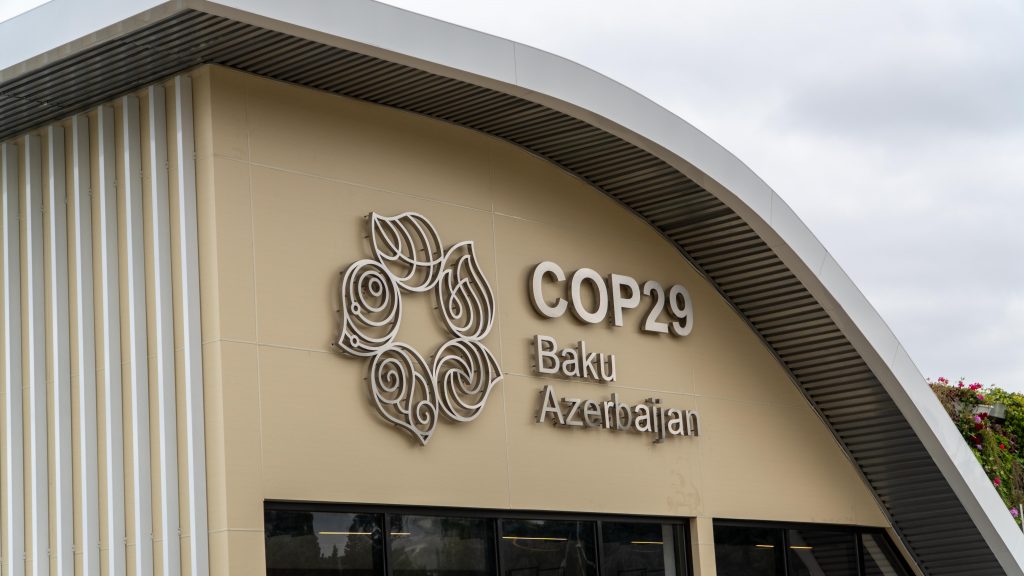
26 November 2024
In its statement in Baku, Azerbaijan at COP29, the Intergovernmental Panel on Climate Change (IPCC) reported, “our chances of limiting warming to 1.5 Celsius are hanging on a very slender thread.” On an everyday level, this means that the most vulnerable human beings and their communities carry the burden of intensifying climate misery, and many will die. The World Health Organization’s conservative estimate is that between 2030 and 2050, climate change will cause 250,000 deaths annually. Currently, “3.6 billion people already live in areas highly susceptible to climate change.” And by the end of the century, due to extreme temperatures, nearly 11 million people will die annually. These are not mere numbers; these are human lives and livelihoods, our future generations.
The United Nations Convention on Climate Change, the Kyoto Protocol, and the Paris Agreement establish a course for party states to limit the temperature increase by 1.5 Celsius by recognizing their common but differentiated responsibilities and the essential role of climate finance for climate action.
A recent report on climate finance estimates that by 2030, USD 1.3–1.4 trillion annually is needed for developing countries to mitigate and adapt to climate change. At COP29, developed countries agreed to a new collective quantified goal, which falls far short of what is needed– to provide only USD 300 billion annually to emerging economies. Taking into account that fossil fuel subsidies surged by a record USD 7 trillion in 2023, the COP29 final decision represents itself as an effort to escape from obligations under international law. Apparently obsessed with political and financial interests and maintaining a strong grip on fossil fuel dependence, the parties at COP29 appear to forget that the climate crisis affects every country, including petro states.
The adopted COP29 document does not include safeguards for human rights as part of the finance goal. This omission will further damage communities and the environment. Human rights must be included throughout all areas of climate negotiations. The UNFCCC and parties to COP must go beyond urging parties “to promote the inclusion and extension of benefits to vulnerable communities and groups in climate finance efforts, including women and girls, children and youth, persons with disabilities, Indigenous Peoples, local communities, migrants and refugees, climate-vulnerable communities and people in vulnerable situations.”
The UNFCCC must also undergo significant reform and, in selecting the host country for future COPs, should not assign the critical responsibility of being a climate summit leader to a petrostate worshiping its “divine” oil and gas. The participation and influence of fossil fuel and carbon capture industries, which stall and derail climate negotiations, must be limited at the summit. The UNFCCC Secretariat must ensure civil society has an opportunity to participate in meaningful ways by improving the accreditation process for observer organizations, which currently takes a minimum of two years. With a favorable environment, UNFCCC could foster mutually agreeable solutions between the party states. There is a lot of work to do for this to occur.
